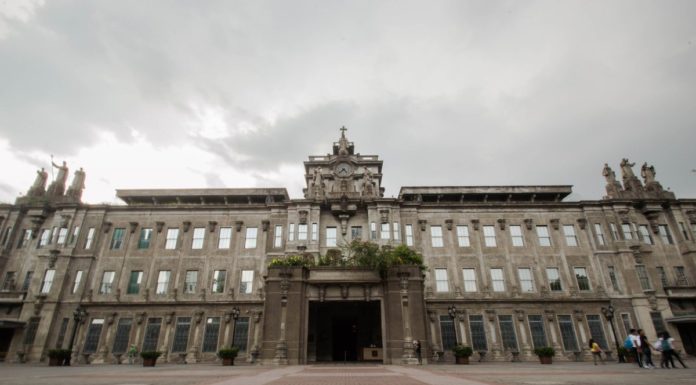
(Photo from whitehouse.gov)
SAME-SEX marriage is possible under the Philippine
constitution and should be treated as a matter of “equal protection” under law
rather than a religious issue, a Protestant pastor who conducts same-sex
weddings said.
Rev. Ceejay Agbayani, founding pastor of the LGBTS Christian
Church Inc., an independent Protestant church, argued that procreation should
not be the basis of marriage. “Mutual love, respect, and support [is] the
essence of marriage. Walang procreation doon,” Agbayani told the Varsitarian in
an interview.
Most Christian churches, including the Roman Catholic
Church, hold marriage to be a permanent union geared toward the unity of
husband and wife as well as producing offspring.
But Agbayani said religion should not influence the debate
over the legalization of same-sex marriage in a secular country like the
Philippines. “It’s not a religious issue. It’s equal protection of the law,” he
said. “Kapag nagkaroon ng same-sex marriage ang Pilipinas, mawawala ba ng
heterosexual marriages?”
Agbayani also said it was not necessary to amend the 1987
Constitution, which uses the term “spouses,” to allow same-sex marriage in the
Philippines. The term “spouses” may also refer to same-sex couples, he claimed.
Article XV, Section 2 of the 1987 Constitution states that
“Marriage, as an inviolable social institution, is the foundation of the family
and shall be protected by the State.” Section 3 states that “The State shall
defend: (1) The right of spouses to found a family in accordance with their
religious convictions and the demands of responsible parenthood.”
However, there is a need to amend the Family Code (Executive
Order No. 209), which defines marriage as “a special contract of permanent
union between a man and a woman entered into in accordance with law for the
establishment of conjugal and family life,” Agbayani said.
Charter follows ‘traditional definition’
Lawyer Jeremy Gatdula, professor of law at the University of
Asia and the Pacific, said legalizing same-sex marriage under the 1987
Constitution was impossible, as the charter adheres to the traditional context
of marriage.
“Marriage in [the Philippine] constitution is always within
the context of the family and of the raising of children,” Gatdula told the
Varsitarian. “In order for same-sex marriage to happen in the Philippines,
there will have to be an amendment of the Constitution. But as it stands now,
marriage is safe given the traditional definition of marriage.”
The state’s interest in marriage is clearly linked to its
procreative purpose, he added.
“Why should the state have any reason to actually be
involved in the relationship of two people just because they’re in love?”
Gatdula asked. “Under the traditional marriage institution, the interest of the
state is clear. It is because of the fact that the family is taking care of the
future citizens of the state.”
Akbayan Rep. Barry Gutierrez has vowed to file a bill
amending the Family Code in the next Congress.
“No law can compel religious institutions to change their
own rules or to change their own beliefs. What the bill can do is to allow for
a mechanism na `yung state will recognize civilly `yung mga kasal,” Gutierrez
said in a Philippine Daily Inquirer report.
US ruling
Debate over same-sex marriage in the Philippines was sparked
by the June 26 ruling of the US Supreme Court declaring same-sex marriage to be
a constitutional right in all 50 states. Previously, it was up to each state to
legalize same-sex marriages under the US federal system of government, which
divides powers between the federal and state governments.
The 5-4 vote made the United States the 21st and most
populous country to legalize same-sex marriage.
The ruling, penned by Justice Anthony Kennedy, says: “[A]s
some of the petitioners in these cases demonstrate, marriage embodies a love
that may endure even past death. It would misunderstand these men and women to
say they disrespect the idea of marriage. Their plea is that they do respect
it, respect it so deeply that they seek to find its fulfillment for
themselves.”
Chief Justice John Roberts wrote a vigorous dissent, as did
the three others in the minority. Roberts said the majority created a right not
found in the US Constitution and past rulings, and closed the debate instead of
leaving the matter to state governments.
He wrote: “The majority’s decision is an act of will, not
legal judgment. The right it announces has no basis in the Constitution or this
Court’s precedent. …The Court invalidates the marriage laws of more than half
the States and orders the transformation of a social institution that has
formed the basis of human society for millennia, for the Kalahari Bushmen and
the Han Chinese, the Carthaginians and the Aztecs. Just who do we think we
are?” Paul Xavier Jaehwa C. Bernardo and Lea Mat P. Vicencio












How can you say you follow Jesus and not follow his commands? Saviour lang pero hindi Lord?